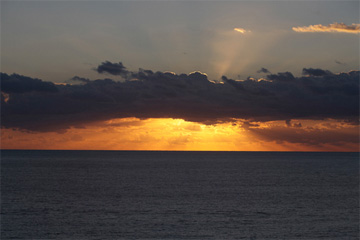Two big events happened in Cancun. The first was the Conference of the Parties (COP) which dealt with negotiations on the future of the United Nations Framework Convention on Climate Change (UNFCCC). This is the official COP’s annual event. The results were limited considering the urgency and the severity of global climate change. Not many surprises, unfortunately.
The other event could be called “Global Conference on Climate Changes and Sustainable Development.” There were several discussions, symposiums, workshops and meetings which were held in hotels all over Cancun. Formally these events are known as “side-events” at COP.
Different from the main event, these side-events were a huge success. It was possible to see the dynamism and innovation potential of national and sub-national governments, companies, social movements, research institutions, and other leaders. Events highlighted all kinds of technological breakthroughs by researchers and companies. Local, regional, and national leaders discussed complex issues without the formalities of the official negotiations.
 Sunrise in Cancun during COP 16. |
Good news came from Indonesia, which has launched an ambitious deforestation reduction program, as well as a paradigm shift towards a green economic development. Forest certification systems saw huge progress and overcame methodological issues. Big global enterprises supported sectorial agreements to track their supply chain and diminish their carbon footprint. NGOs introduced great innovations to combine poverty alleviation and nature conservation. Investors showed themselves more prepared to invest in green businesses. Multilateral agencies presented great outcomes as well – south-south partnerships have become a new source of hope and optimism. New alliances and pacts have broken paradigms, sectarianism and old prejudices – we are witnessing the birth of a new global alliance.
The overall message from these side-events was: “independent of the COP process, we have decided to act now.” What inspired the progress? Perhaps it was the frustration of trying to work through the official process, the vulnerability of the private sector to civil society pressure, or the economic opportunities presented by climatic, social, and environmental issues. Whatever the cause, what is clear is that from now on, we shall pay close attention to the outcomes from the Global Conference about Climate Changes and Sustainable Development. The next will be in South Africa, at the end of 2011, and then Rio de Janeiro in 2012. These will be great opportunities for new leaderships with practical, audacious and innovative actions towards a green economy.
Vigilio Viana has major in Forestry Engineering at University of São Paulo and a PhD. in Evolutionary Biology at Harvard University. He is the former Secretary of Environment and Sustainable Development in the state of Amazonas, Brazil, and now he is CEO at the Amazonas Sustainable Foundation.